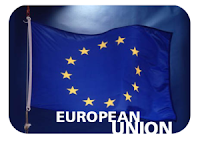Apple said on Monday that it has sold more than 4 million iPhone 4S smartphones since its launch three days ago, setting a sales record for the device. Over the weekend, the company sold more than twice the 1.7 million iPhone 4s that it sold during last year's opening weekend, though the numbers are a bit skewed: This year's iPhone was simultaneously launched in the United States, Australia, Canada, France, Germany, Japan and the United Kingdom, while last year's launch did not include Australia and Canada. Let us not forget however, that the iPhone 4S is available today only in United States, Australia, Canada, France, Germany, Japan and United Kingdom. 28 October will be available in other 22 countries by the end of the world. This means that iPhone 4S will likely continue to break record sales of mobile phones.
"IPhone 4S is off to a great start," Philip Schiller, Apple's head of marketing, said in a prepared statement. "IPhone 4S is a hit with customers around the world, and together with iOS 5 and iCloud, is the best iPhone ever."
Apple also announced that more than 25 million customers have downloaded or purchased a device with iOS 5, the new mobile software that powers the iPhone, iPad, and iPod Touch. The latest version of the operating system became available on Oct. 12.
The new iPhone appears physically the same as the iPhone 4, but the guts are improved: it features a new, faster processor called the A5, which debuted in the iPad 2. It also includes a better, 8-megapixel camera, an improved antenna, and Siri, the new voice command software that's billed as an on-board personal assistant.
Siri has already become a cult sensation, inspiring glowing reviews and blogs devoted to chronicling her more amusing quotes. She's got opinions about the meaning of life ("42") and the best place to hide a body ("metal foundries" and "swamps" make the list).
utorok 18. októbra 2011
Slovakia said ''NO'' for European bailout plan.
In Slovakia rejected a plan on Tuesday to expand the powers of a bailout fund for banks and troubled European governments. The development, which was tied to a vote of confidence in the government of Slovakian Prime Minister Iveta Radicova, is a bit of a setback for European leaders that are struggling to deal with the continent's growing debt crisis.
Slovakia is the only member of the 17 nation euro currency bloc that has not approved the plan to overhaul the bailout fund, known as the European Financial Stability Facility, or EFSF.
Tuesday's "no" vote does not necessarily mean that the plan to expand the EFSF is dead. But the vote means Radicova will resign. The incoming government could hold a second vote on Thursday or Friday, according to a spokeswoman for the Slovakian Parliament. Increasing the power of the EFSF is viewed as a crucial first step towards strengthening the banking system in Europe and addressing a long-running sovereign debt crisis in Greece and several other euro zone nations. Under an agreement reached in July, the €440 billion fund will have greater powers to intervene in sovereign debt markets and provide funding for banks that need to raise capital. Portugal and Ireland have already tapped the fund and officials have proposed using it to back a second €109 billion bailout for Greece. The revamped fund could also be used to buy government bonds issued by Italy, Spain and other nations struggling to pay down debt. That would take some pressure off of the European Central Bank, which has been reluctantly intervening in the sovereign debt market for months. The EFSF is also viewed as a potential lender of last resort for European banks. The European banking system has been under increasing pressure as worries about exposure to bad sovereign debt has led to a pull-back in interbank lending. But overhauling the EFSF has been a contentious issue in many European capitals, where taxpayers have resisted backing further bailouts.
In Slovakia, one of the euro area's smallest economies, the issue has been particularly unpopular. Richard Sulik, chairman of Slovakia's Freedom and Solidarity party, said rejecting the EFSF overhaul will save European taxpayers more than €300 billion, according to the Slovak news agency.
sobota 17. septembra 2011
Laws of Demand and Supply

Demand is the quantity of a good or service that costumers are willing and able to porchase at a given price in a given time period.
The law of Demand states that if the price of a product falls, the quantity will usually increase and if the price of a product rises, the quantity will usually decrease.
Suppy is abiliby of producers to produce a quantity of a good or service at a given price in a given time period.
The law of Supply states that if the price of a goods rises, the quantity supplied of the product will usually increase and if the price of a good falls, the quantity supplied of the product will usually decrease.
utorok 13. septembra 2011
Oil Is Plentiful, Demand Weak. Why Are Gas Prices Going Up?
Why are Gas prices going up ?
Fears that the turmoil in Egypt could disrupt oil shipments passing through the Suez canal and engulf the Middle East drove the price of Brent crude oil through the $100 barrier for the first time in over two years.
The price of a barrel of the benchmark Brent crude soared by more than $1.50 to as high as $101.08 a barrel as the protests against President Hosni Mubarak's regime intensified. Prices are now at their highest since September 2008, at the start of the financial crisis.

Since August, oil prices have been steadily increasing from around $70 on the back of higher demand as the global economy recovers from the downturn, fuelling inflation.
The latest rise in oil prices will put further pressure on the British government to head off a rise in fuel duty planned for April.

Prihlásiť na odber:
Komentáre (Atom)




